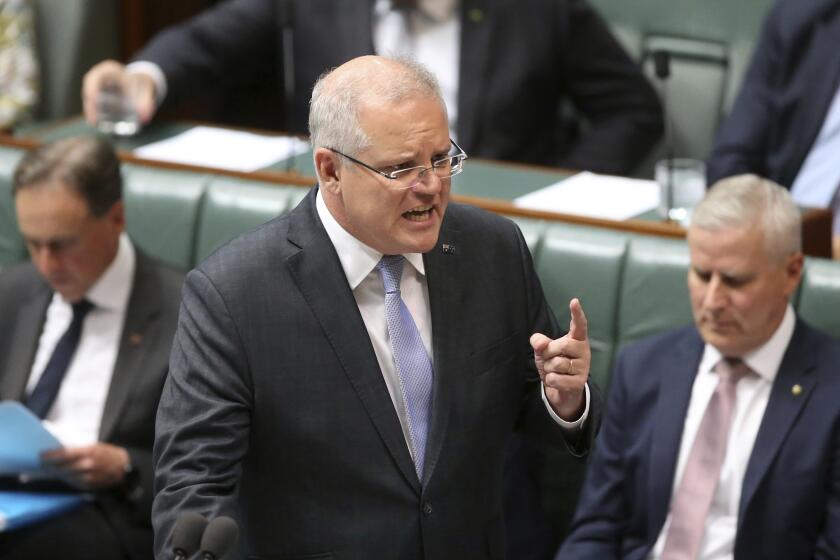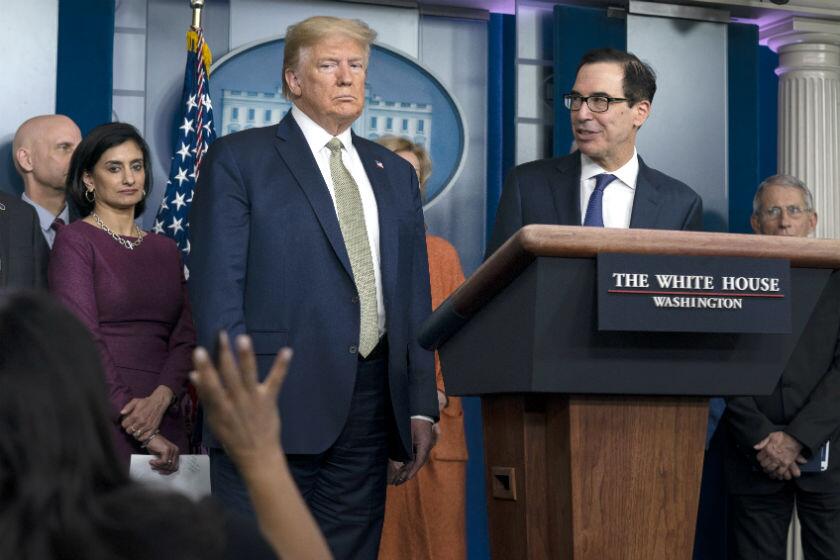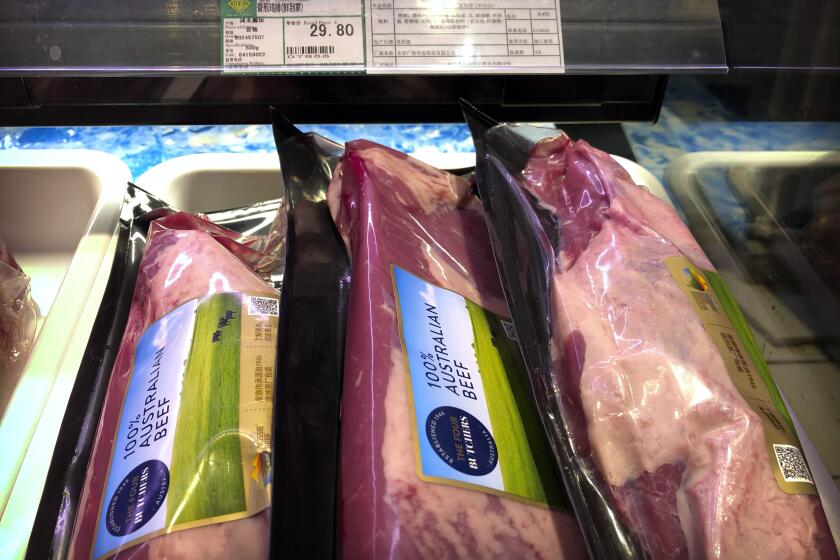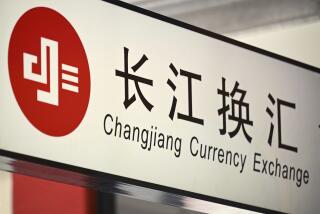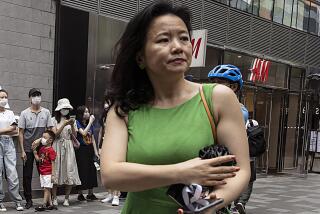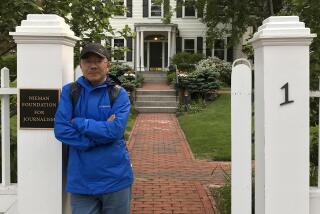Last 2 journalists working for Australian media in China leave under duress

CANBERRA, Australia — The last two journalists working for Australian media in China have left the country after police demanded interviews with them and temporarily blocked their departures.
The absence of Australian media from China for the first time in four decades comes during a low point in the two countries’ relations, and the events that led to the journalists’ departures were seen as evidence of an increasing risk to foreign journalists working in China.
Australian Broadcasting Corp.’s Bill Birtles and the Australian Financial Review’s Michael Smith landed in Sydney on Tuesday after flying from Shanghai on Monday night, both news outlets reported.
Both journalists had sheltered in Australian diplomatic compounds in recent days.
They left after Australia revealed last week that Australian citizen Cheng Lei, a business news anchor for CGTN, China’s English-language state media channel, had been detained.
Both journalists were told they were “persons of interest” in an investigation into Cheng, the Australian Financial Review reported. Seven uniformed police visited the journalists’ homes in Beijing and Shanghai at 12:30 a.m. Thursday, the newspaper said.
The Australian prime minister says Australia is under an increasing cyberattack from a ‘sophisticated state-based cyber actor’ believed to be China.
Birtles said he knew Cheng “but not especially well,” and Smith had met her once.
“I believe the episode was more one of harassment of the remaining Australian journalists rather than a genuine effort to try and get anything useful for that case,” Birtles said from the Sydney hotel room where he is in mandatory coronavirus quarantine.
Australian Embassy officials in Beijing told Birtles last week that he should leave China, ABC reported.
Birtles was due to depart Beijing on Thursday and was holding a farewell party Wednesday when police came to his apartment and told him he was barred from leaving the country, ABC said. He was told he would be contacted Thursday to organize a time to be questioned about a “national security case,” the network said.
China says it will revoke the credentials of Americans at three U.S. newspapers in response to new U.S. restrictions on Chinese media amid recriminations over coronavirus.
Birtles went to the Australian Embassy, where he spent four days while Australian and Chinese officials negotiated. Smith had similarly holed up at the Australian Consulate in Shanghai.
Birtles and Smith both agreed to give police a brief interview in return for being allowed to leave the country.
Australian Foreign Minister Marise Payne said Cheng’s detention was part of the reason her government had advised the journalists to leave. She declined to detail all the reasons.
“It is disappointing that after many years, Australia will not have a media organization present in China for some period of time,” Payne said.
Australia says it doesn’t want a trade war with China, which is angry at Australia’s push for an investigation into its handling of the coronavirus.
She said Australia would not retaliate by revoking the visas of Chinese journalists working in Australia.
“Australia operates according to law and in our national interests, and unless individuals are breaching laws in Australia, then that would not be an approach that we would take,” Payne said.
Australia’s travel warning of the risk of arbitrary detention in China “remains appropriate and unchanged,” she added.
ABC news director Gaven Morris said Birtles was brought back to Australia on the Australian government’s advice.
Teachers and students have refused to comply with a new bilingual education program in Inner Mongolia. The state is cracking down in response.
“This bureau is a vital part of the ABC’s international news-gathering effort and we aim to get back there as soon as possible,” Morris said. “The story of China, its relationship with Australia and its role in our region and in the world is one of great importance for all Australians and we want to continue having our people on the ground to cover it.”
The newspaper’s editor-in-chief, Michael Stutchbury, and editor, Paul Bailey, described the situation as “disturbing.”
“This incident targeting two journalists, who were going about their normal reporting duties, is both regrettable and disturbing and is not in the interests of a cooperative relationship between Australia and China,” they said in a statement.
Relations between China and Australia were already strained by Australia outlawing covert interference in politics and banning communications giant Huawei from supplying critical infrastructure. They have worsened since the Australian government called for an independent inquiry into the origins of and international responses to the COVID-19 pandemic.
News Alerts
Get breaking news, investigations, analysis and more signature journalism from the Los Angeles Times in your inbox.
You may occasionally receive promotional content from the Los Angeles Times.
Australia’s journalists union, Media Entertainment and Arts Alliance, said China was no longer safe for foreign reporters. “These outrageous attacks on press freedom place any foreign correspondents reporting from China at risk,” union president Marcus Strom said.
Birtles told reporters at Sydney’s airport that his departure was a “whirlwind and ... not a particularly good experience.”
“It’s very disappointing to have to leave under those circumstances, and it’s a relief to be back in a country with genuine rule of law,” Birtles said.
Smith told his newspaper: “The late-night visit by police at my home was intimidating and unnecessary and highlights the pressure all foreign journalists are under in China right now.”
Smith said at the airport that he had felt “a little bit” threatened in China.
“It’s such a relief to be home, so really happy,” Smith said. “It was a complicated experience but it’s great to be here.”
More to Read
Sign up for Essential California
The most important California stories and recommendations in your inbox every morning.
You may occasionally receive promotional content from the Los Angeles Times.
